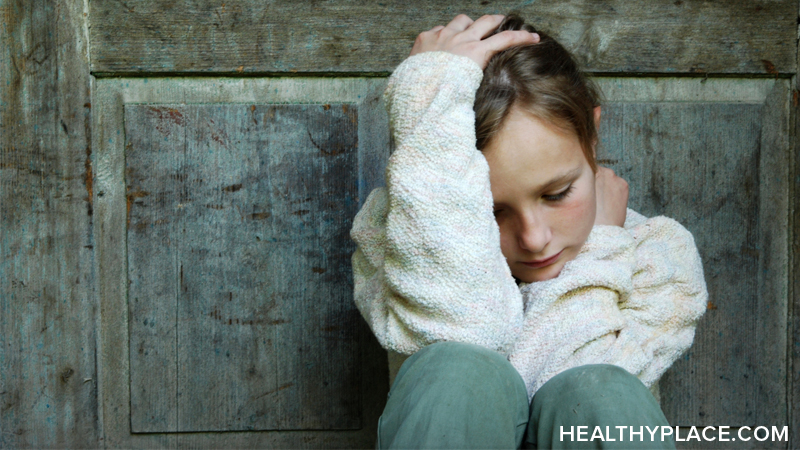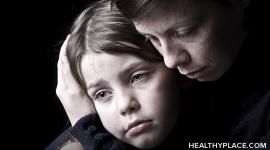Depression in Children: Causes, Treatment of Child Depression

Depression in children is a problem that is now being taken more seriously than ever. While it was once believed children didn't experience depression, we now know children with depression may complain of illnesses, refuse to go to school, cling to a caregiver and create behavioral patterns that can be detrimental going into the next stages of their lives. (read more about: Child Depression Symptoms)
Depression in youth appears to be common as the following estimates of depression show:1
- 0.9% in preschool-aged children experience depression
- 1.9% in school-aged children experience depression
- 4.7% in adolescents experience depression
Pre-puberty, depression occurs in equal amount across genders. During and after puberty, more women experience depression than do men.
The latest version of the Diagnostic and Statistical Manual of Mental Disorders (DSM-IV-TR) makes very little distinction between depression in kids and adults. However, diagnostically, depressed children may have more of an irritable mood than a depressed one and a depressed child may fail to gain the appropriate amount of weight, rather than lose weight, which is common in adults.
Causes of Depression in Children
The causes of depression in children have not yet been pinpointed, but factors are thought to be genetic, physiological and psychological. Over time, the diagnosis of depression in kids is being seen at younger and younger ages. Poor psychosocial, school and family functioning all appear to contribute to the causes of depression in children.
Dysfunctions in the brain are one of the causes of depression in children. In one study, youth (under 18 years) hospitalized for depression were found to have unusual frontal lobe and lateral ventricular volumes in the brain. In other words, some parts of the brain appear to be underdeveloped while others appear to be overdeveloped in depressed children.
Other causes of depression in children appear to include:
- Sexual or physical abuse or neglect
- A mentally ill parent
- The more mental illness in a family, the younger depression tends to develop
- Possibly a lack of involvement by the father and overprotection by the mother
Treatment for Depression in Children
For mild-to-moderate depression in children, treatment does not typically involve antidepressant medications. Often changes in the home, school and personal life of the depressed child is the most effective form of depression treatment.
Cognitive behavioral therapy has been shown effective in treating childhood depression. For more severe cases of depression in children, therapy plus and antidepressant is the most effective form of treatment. You can get comprehensive information about antidepressants for children here.
It's important to remember that approximately 1-out-of-100,000 children ages 10-14 dies of suicide2, so early assessment and treatment of childhood depression is critical. Go here to learn how to help a depressed child.
APA Reference
Tracy, N.
(2022, January 3). Depression in Children: Causes, Treatment of Child Depression, HealthyPlace. Retrieved
on 2025, April 15 from https://www.healthyplace.com/depression/children/depression-in-children-causes-treatment-of-child-depression


